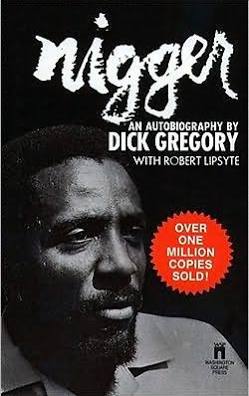You have /5 articles left.
Sign up for a free account or log in.
As a lifelong champion of civil rights and a firm believer in fighting for what is right, I applaud our young people for the various protests they have undertaken in recent years, such as Occupy Wall Street and Black Lives Matter. Recently, the young brothers and sisters of MRC Student Coalition at Matteo Ricci College, Seattle University, have taken up such a fight based on curriculum concerns. This protest, however, has become personal for me, since it is in part centered on my autobiography entitled Nigger, and the fact that some students became offended when Jodi Kelly, dean of Matteo Ricci College, recommended Nigger to a student to read.

While I strongly support their right to air their grievances, I ask these students to ask themselves if the scale of their movement is appropriate for a curriculum discussion. Can students adequately connect a recommendation to read my autobiography with their larger curriculum issues?
I am not offended by Dean Kelly's use of the word “nigger.” In fact, I am pleased that she has the foresight to want to give these young men and women the knowledge, insight and experience of a civil rights activist that might just help them understand life a little better. I am disappointed that they seemed to have stopped at the title instead of opening the book and reading its contents. Years ago my mama told me, “Son, sticks and stones can break your bones, but names will never hurt you.” I grew up thinking that Richard was what they called me at home, but my real name was Nigger.
That’s why I named my autobiography Nigger, because it only echoes what “they” called me -- it doesn’t define who I am. People called me nigger in 1964 when I marched with Martin Luther King Jr., when I sat in the Birmingham jail with him and when I walked across the Pettus Bridge in Selma, Ala. When I fasted for 72 days protesting the Vietnam War, the white folks and even some black folks said, “Look at that crazy nigger.”
I have frequently said that sometimes black folks focus on the wrong injustices. For example, black folks tolerate Howard University being named after General Howard, who became famous for killing Indian children, and Spelman College being named after the grandmother of Nelson Rockefeller. Many times we rise up for injustices that are not the most oppressive. I frequently speak on college campuses and explain that we were fighting for liberation, not education. A liberated mind requires a deeper historical and analytical understanding about the good, bad and ugly regarding America’s past, and its future.
I tell students they should be concerned that some of their classmates can’t walk down the streets in certain cities without the fear of being shot by both gangbangers and misguided police officers. They should be concerned about violence and sex assaults on college campuses. The National Rifle Association wants to arm students -- and that doesn't bother you? Students should be concerned about the exorbitant cost of education and subsequently student debt, the next financial crisis. Also, students should be concerned about a job market that is not going to be waiting on them upon graduation.
Some students want to punish Dean Kelly for giving them some good advice. Somehow, her advice and the hypersensitivity to her suggesting my book by its title managed to get dragged into the curriculum debate. By adding a hot-button racial component to that debate, the students managed to water down their main objectives. Movements need to be clear and well defined, yet they rarely are.
I have read the students’ list of demands, which include issues such as “Classrooms which encourage healthy academic discourse.” That includes fostering dissent, analyzing diverse narratives, discussing the intention of others and dealing with microaggressions. Classrooms must also provide space to discuss how books from previous generations may be problematic yet remain very much connected to modern-day issues.
There’s a blurb on the cover of my book from The New York Times. It says, “Powerful and ugly and beautiful … a moving story of a man who deeply wants a world without malice and hate and is doing something about it.” I’m proud that Dean Kelly recognized my autobiography as something that students of all races can learn from. I am also proud and pleased that my autobiography Nigger was among her collection of books.
I do not presume to know more than professional educators. Yet it appears to me that Dean Kelly was encouraging healthy academic discourse. I ask the students to ask themselves if they objectively considered Dean Kelly’s real intentions and if they themselves are willing to engage in academic discourse. This seems like an issue that is bigger than one dean. It also seems that if both sides were to have meaningful discussions, they would find common ground.
The person who has read and is now recommending my autobiography to her students is most likely not racist. My communication with Dean Kelly leads me to believe that she respects students’ intelligence enough to share with them the autobiography of a black man who was honest enough to name his book Nigger.
Students, your dean didn’t name the book -- I did. I am hopeful that my autobiography will become required reading at Matteo Ricci College -- and I am certain that it will be enlightening. I’ll even provide the books for free. Continue to be respectful and peaceful, loving and lovable.
God bless you,
Dick Gregory




